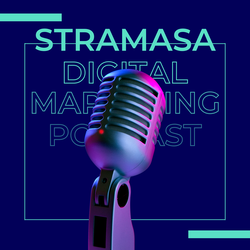For example, an advertisement for a new television may include technical information about the pixel density, picture resolution, display size and processing rates. These are all important factors that consumers may consider before purchasing a new television.
Why is technical marketing important?
Technical marketing is a useful strategy to appeal to customers who have a good understanding of how a product or service works. While providing a general overview may be sufficient to appeal to new customers who have little experience using similar products or services, persuading customers who know what features they’re looking for requires more detailed information.
For example, someone who has never owned a digital single-lens reflex (DSLR) camera before may prefer advertisements that offer a quick summary of the most basic features. However, a professional photographer may want to know about specific technical aspects, such as the ISO range, type of image sensor and processor, shutter speed and frame coverage. Using technical marketing techniques can help you demonstrate your expertise and authority so you can build trust with experienced customers.
When to use technical marketing
Technical marketing is appropriate to use any time a customer may find value in understanding the exact specifications of a product or service. For example, marketers who work with electronics and financial services often use technical marketing to provide exact specifications to potential customers. Companies that provide the following types of products and services may also benefit from incorporating technical marketing into their advertising strategies:
- Telecommunications
- Power tools
- Vehicles
- Software programs and applications
- Building and construction materials
- Computer systems
6 tips to create effective technical marketing campaigns
Here are six additional tips to help you develop effective technical marketing campaigns:
1. Provide technical team training
Offer demos, presentations and technical training sessions for other members of your marketing and sales teams. This can help you ensure everyone has a basic understanding of the technical aspects of the products or services you promote. It can also improve your team’s ability to answer customer questions online and develop informational content strategies. This can help you build credibility with potential customers.
2. Develop a holistic marketing plan
Strive to create content for people during every stage of the buyer’s journey. This includes people who may be familiar with the technical aspects of your products, as well as those who aren’t. While technical marketing is an excellent tool, it works best when combined with other, more general marketing techniques. This can help you appeal to a wider audience.
In addition to this, identify what online platforms or mediums more tech-savvy members of your target audience may enjoy. For example, if you’re marketing a new soundboard for professional audio engineers, you might create more technical advertisements for magazines and websites geared toward musicians.
3. Focus on storytelling
While you certainly can list the technical aspects and specifications of the products and services you promote, explaining why these features are important can be more compelling. Focus on what benefits customers may receive based on these technical aspects. Then craft a story around these benefits to highlight them memorably.
4. Incorporate case studies
Sharing case studies can be a powerful way to highlight the technical aspects of a product or service. Identify customers or clients who have benefited from using the product or service you’re promoting. Then interview them to learn what specific features they find the most useful. You can capture this content through photos, videos, blog posts or podcasts to incorporate each case study into your technical marketing plan.
5. Provide key facts and technical data
Focus on highlighting key facts and technical data in each of your advertisements. Include numbers, statistics and reputable sources to back up your claims. For example, if you’re marketing a new vehicle that you want prospective customers to know is safe, you might highlight technical features like blind-spot monitoring and adaptive headlights, but you could also include crash test results or share that it won a Top Safety Pick award from a well-known news outlet to make these features stand out. This can help you build credibility and increase the trust consumers have in your brand.
6. Monitor your performance
Finally, monitor your performance carefully. Identify key performance indicators (KPIs) you can track throughout each campaign. Some popular examples of marketing KPIs include impressions, engagements, clicks, leads and conversions. Use this information to generate monthly or quarterly reports that help you assess whether your efforts are successful. You can also create a report at the end of each technical marketing campaign. Make a note of what types of content your target audience engaged with the most and where there may be opportunities for improvement. This can help you optimize your marketing strategies over time.
Get in touch
Got a project or do you have any questions for us?
Let’s have a virtual coffee and talk about your challenge.
We are a full-service agency offering strategic marketing services
Our industry experience and market research make the difference
With any industry, understanding how to most effectively approach the market is crucial to growing a business. If you’re looking for help from a digital marketing agency it pays to choose one that already understands your industry and your customers. Take a flying start with Stramasa as your B2B digital agency partner thanks to our industry insights, local & global learnings and understanding of your ideal brand positioning for your target audience in your sector. We’re always eager to deepen our expertise & learn about new industries so let’s connect!
Request An Introduction Meeting
Book A Consultation
Ready to grow your business together? Let’s connect!
Contact & Availability
Email: info@stramasa.com
Monday to Friday: 9:00 AM to 10:00 PM
Saturday: 9:00 AM to 5:00 PM
Sunday: 9:00 AM to 5:00 PM
Let’s Connect
Our expertise makes the difference

Our international offices & local teams
NA – United States (USA) – New York (NYC), Miami, Orlando, Florida, Denver, San Diego, Chicago, Houston, Austin, Texas, Boston, Los Angeles, Washington, Seattle, Philadelphia, Portland, Ohio, Minneapolis, New Jersey, Cleveland, Columbus, Richmond, Indianapolis, Phoenix, Arizona | Canada – Toronto, Vancouver, Montreal, Calgary, Edmonton, Ottawa EMEA – Europe – Brussels – Belgium, London, Manchester, Dublin, Brisbane, Bristol, Newcastle – UK | Glasgow, Scotland | Ireland | Dubai – U.A.E. |Turkey | Berlin, Hamburg Germany | Amsterdam, The Netherlands, Barcelona Spain, Rome, Italy | Beijing, Chennai, China APAC & ASEAN – Manila – Makati – Philippines | Osaka, Tokyo, Kyoto – Japan | India – Mumbai, Delhi, Bangalore | Singapore | Bali, Jakarta, Indonesia | Kuwait | Pakistan | Jeddah, Saudi Arabia | Hong Kong | Thailand | Australia – Melbourne, Sydney LATAM – Brazil














